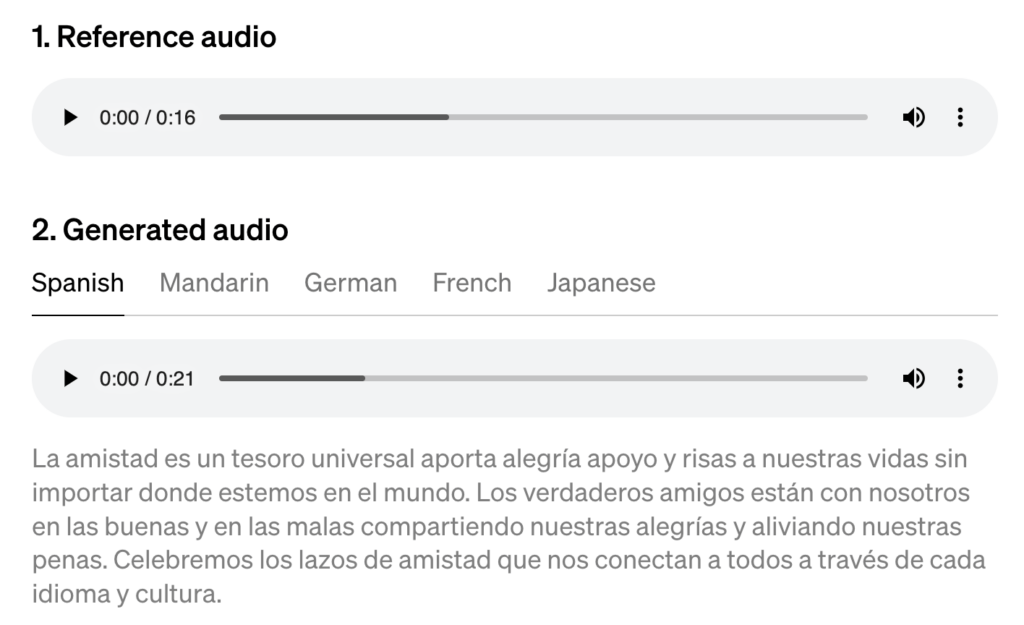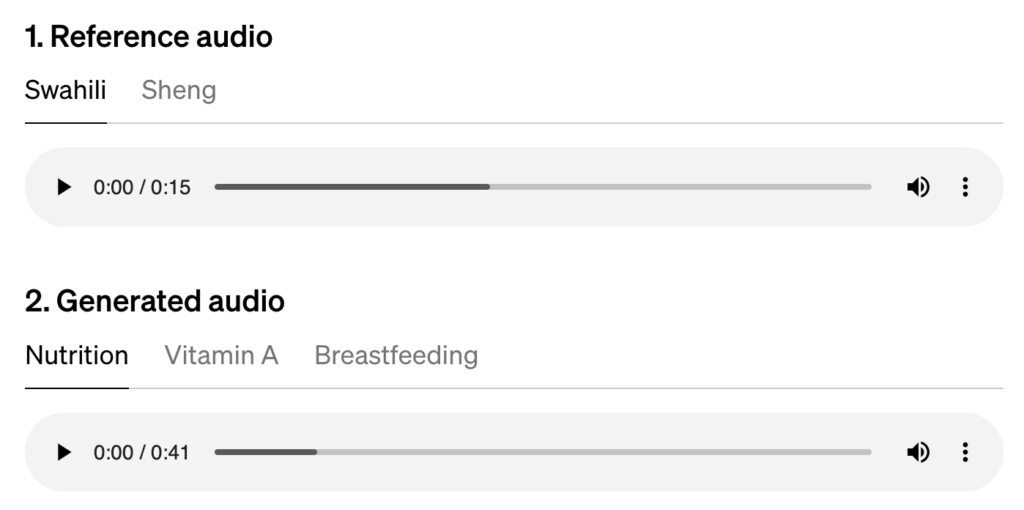In the last 18 months, OpenAI has been at the forefront of innovation by introducing three of the most advanced AI technology tools to the world. These tools are not only the first of their kind in history but also hold tremendous potential for people across diverse industries and fields – HOWEVER, only when they’re in the hands of the right people.
In a recent development, OpenAI unveiled a Voice Engine, a cutting-edge technology capable of generating natural-sounding speech closely resembling the original speaker using just text input and a brief 15-second audio sample.
In a recent press release, OpenAI revealed that they initially developed Voice Engine technology in late 2022, utilizing it to power the preset voices featured in their text-to-speech API, as well as in products like ChatGPT Voice and Read Aloud.
However, despite its capabilities, OpenAI is proceeding cautiously with a broader release of this new technology due to concerns regarding the potential misuse of synthetic voices.
“We hope to start a dialogue on the responsible deployment of synthetic voices, and how society can adapt to these new capabilities. Based on these conversations and the results of these small scale tests, we will make a more informed decision about whether and how to deploy this technology at scale,” says OpenAI in a press release.
Applications of Voice Engine Across Industries
In 2023, OpenAI initiated private tests with a select group of trusted partners to explore the capabilities of Voice Engine. The results have been highly promising, revealing a range of potential applications for this advanced technology.
Reading Assistance: One notable application is in education, where Age of Learning, an edtech company, has employed Voice Engine to generate pre-scripted voice-over content and to develop personalized responses in real time. By providing customized interactions specifically designed for non-readers and children through natural-sounding voices, Voice Engine has the potential to revolutionize educational content delivery.
Content Translation: Similarly, HeyGen, an AI visual storytelling platform, is leveraging the new Voice Engine AI tool for content translation purposes. By translating videos and podcasts into multiple languages while preserving the original accents of speakers, HeyGen can connect with a global audience. For instance, generating English with an audio sample from a French speaker would result in speech with a French accent, thereby preserving authenticity and enriching audience engagement.

Community Health Services: In the healthcare sector, Dimagi, a provider of crucial healthcare services like counselling for breastfeeding mothers, has integrated OpenAI’s Voice Engine to assist community health workers in remote regions. By providing interactive feedback in each worker’s primary language, including Swahili or more informal languages like Sheng, Voice Engine improves skill development and service delivery, especially in underserved communities.

Support for Non-Verbal Individuals: For individuals with communication challenges, Livox, an AI app designed to assist people with disabilities in communicating, has also integrated the Voice Engine model by OpenAI. The app users now have the flexibility to select speech that accurately reflects their identity. For those who speak multiple languages, the app ensures consistency in voice across each language.
What’s particularly intriguing is that the integration of OpenAI’s Voice Engine is not only helping in language transition but also facilitating voice restoration for patients dealing with sudden or degenerative speech conditions.
The Norman Prince Neurosciences Institute at Lifespan is exploring the uses of AI in clinical contexts. They’ve initiated a program offering Voice Engine to individuals with speech impairment caused by oncologic or neurologic factors.
Doctors Fatima Mirza, Rohaid Ali, and Konstantina Svokos successfully restored the voice of a young patient who lost her fluent speech due to a vascular brain tumor. This remarkable achievement was made possible with the use of a short audio sample from a video recorded for a school project.
In a Nutshell
The advancement of OpenAI’s Voice Engine represents a significant leap forward in artificial intelligence (AI) technology, offering diverse applications across various sectors. Even though the potential benefits are vast, it’s important to navigate its deployment responsibly, considering ethical implications and potential misuse by scammers and fraudsters.
Imagine receiving a phone call purportedly from your boss or family member, urgently demanding a wire transfer of funds. The voice on the other end sounds identical, conveying a sense of urgency and authenticity that leaves little or no room for doubt. In such scenarios, victims could easily fall prey to fraudulent schemes, resulting in significant financial loss and emotional distress.
Regulatory bodies must play a crucial role in establishing guidelines and safeguards to prevent misuse and protect the privacy and security of individuals. It would be interesting to see how OpenAI’s rivals, such as Google, xAI (owned by Elon Musk), and other companies, continue to innovate in this space. As competition drives further development, we can anticipate even more sophisticated AI solutions emerging in the future.

